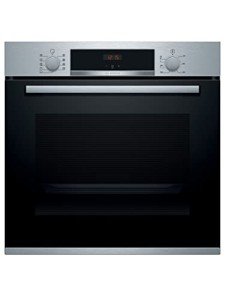How To Explain Oven Integrated To Your Grandparents
A Comprehensive Guide to Integrated Ovens: The Perfect Blend of Style and Functionality
In today's modern kitchen, the integration of appliances plays a significant role in both aesthetic appeals and performance. One device acquiring appeal in contemporary homes is the integrated oven. This short article dives into what an integrated oven is, the benefits it offers, various types to consider, elements to examine before purchase, and answers to frequently asked concerns.
What is an Integrated Oven?
An integrated oven is created to be effortlessly included into kitchen cabinetry, resulting in a streamlined and organized appearance. Unlike built in gas oven and hob that occupy a distinct area and disrupt the circulation of kitchen style, integrated ovens blend into the kitchen cabinetry, supplying a structured look. They are available in different styles, consisting of single and double ovens, and can be coupled with induction hobs, warming drawers, or other kitchen appliances.
Benefits of Integrated Ovens
- Smooth Design: An integrated oven maintains the visual stability of a kitchen by matching kitchen cabinetry, improving the general visual.
- Space Efficiency: These ovens are built into the cabinets, enabling optimum usage of kitchen area without compromising style.
- Enhanced Functionality: Many integrated ovens come geared up with innovative features such as smart technology, self-cleaning options, and multi-cook functions.
- Customization Options: Homeowners can select surfaces, colors, and configurations that best fit their kitchen style, offering boosted customization.
- Better Organization: Integrated ovens promote a more orderly kitchen area, making it possible for simple access to cooking appliances without mess.
Types of Integrated Ovens
There are a number of kinds of integrated ovens that customers can select from, each with unique functionalities:
1. Single Integrated Ovens
Single integrated ovens are ideal for smaller sized kitchens or for those who need standard cooking abilities. These ovens normally use adequate cooking area for daily usage without unneeded intricacy.
2. Double Integrated Ovens
For passionate cooks or larger families, double integrated ovens provide additional cooking capability. Featuring two separate compartments, these ovens permit synchronised cooking of several dishes at various temperatures.
3. Steam Ovens
Steam ovens are a special option that uses steam to cook food. This approach keeps nutrients and tastes, making them a much healthier alternative for stews, veggies, and desserts.
4. Combination Ovens
These flexible appliances integrate a microwave and a conventional oven, using the advantages of both cooking approaches. They make it possible for quickly cooking times along with the ability to bake and roast.
5. Wall Ovens
Wall ovens are developed to be built directly into the wall, making them quickly available. They are best for those who choose elevated cooking areas.
Kind Of Integrated Oven
Best For
Secret Features
Single Integrated Oven
Small kitchens or standard needs
Compact size and simplicity
Double Integrated Oven
Large households or devoted cooks
2 compartments, versatile
Steam Ovens
Health-conscious people
Nutrient retention, flavor
Mix Ovens
Quick cooking and flexibility
Microwave and baking choices
Wall Ovens
Elevated cooking preference
Ease of access and space-saving
Elements to Consider Before Purchasing an Integrated Oven
Before buying an integrated oven, possible purchasers ought to consider numerous factors:
1. Size and Dimensions
- Procedure the available area in your kitchen cabinetry to make sure a correct fit.
- Think about built-in designs, as they might need particular measurements.
2. Cooking Capabilities
- Assess what kinds of cooking you will be doing and pick an oven that caters to those requirements.
- Search for features like convection cooking or specialized settings for baking and roasting.
3. Energy Efficiency
- Think about energy scores to choose an oven that is environmentally friendly and cost-efficient to run.
4. User Interface and Ease of Use
- Try to find designs with instinctive controls and displays, which can simplify cooking experiences.
5. Budget
- Integrated ovens are offered at numerous cost points. Set a spending plan that lines up with your kitchen remodelling plans.
6. Brand Reputation and Warranty
- Research reputable brands and examine client reviews and warranties used for extra comfort.
Often Asked Questions (FAQs)
1. Are integrated ovens more costly than freestanding models?
Integrated ovens may have a higher initial cost due to their style and functions, but they can improve kitchen looks and value.
2. Can I install an integrated oven myself?
While some house owners might pick to install their integrated oven, it's usually suggested to consult an expert for appropriate installation, specifically for electrical and gas connections.
3. Do integrated ovens require unique upkeep?
Integrated ovens do not always need special upkeep, but routine cleansing and timely attention to any concerns are essential for long-lasting performance.
4. What installation choices are offered?
Integrated ovens can usually be set up under counter tops, in wall cabinetry, or as part of a kitchen island, offering flexibility for different design layouts.
5. Do integrated ovens come with built-in functions like self-cleaning?
Lots of integrated ovens offer self-cleaning functions and other features like steam cleaning, which can save time and effort.
The integrated oven is an important addition to modern-day cooking areas, offering a mix of functionality, design, and effectiveness. With various types, adjustable alternatives, and advanced cooking abilities, they deal with a series of culinary requirements. When thinking about a new oven, making the effort to assess your alternatives and viability will ensure that your investment satisfies your expectations and enhances your kitchen experience. Make notified choices to take pleasure in a seamless and satisfying cooking journey in the heart of your home.
